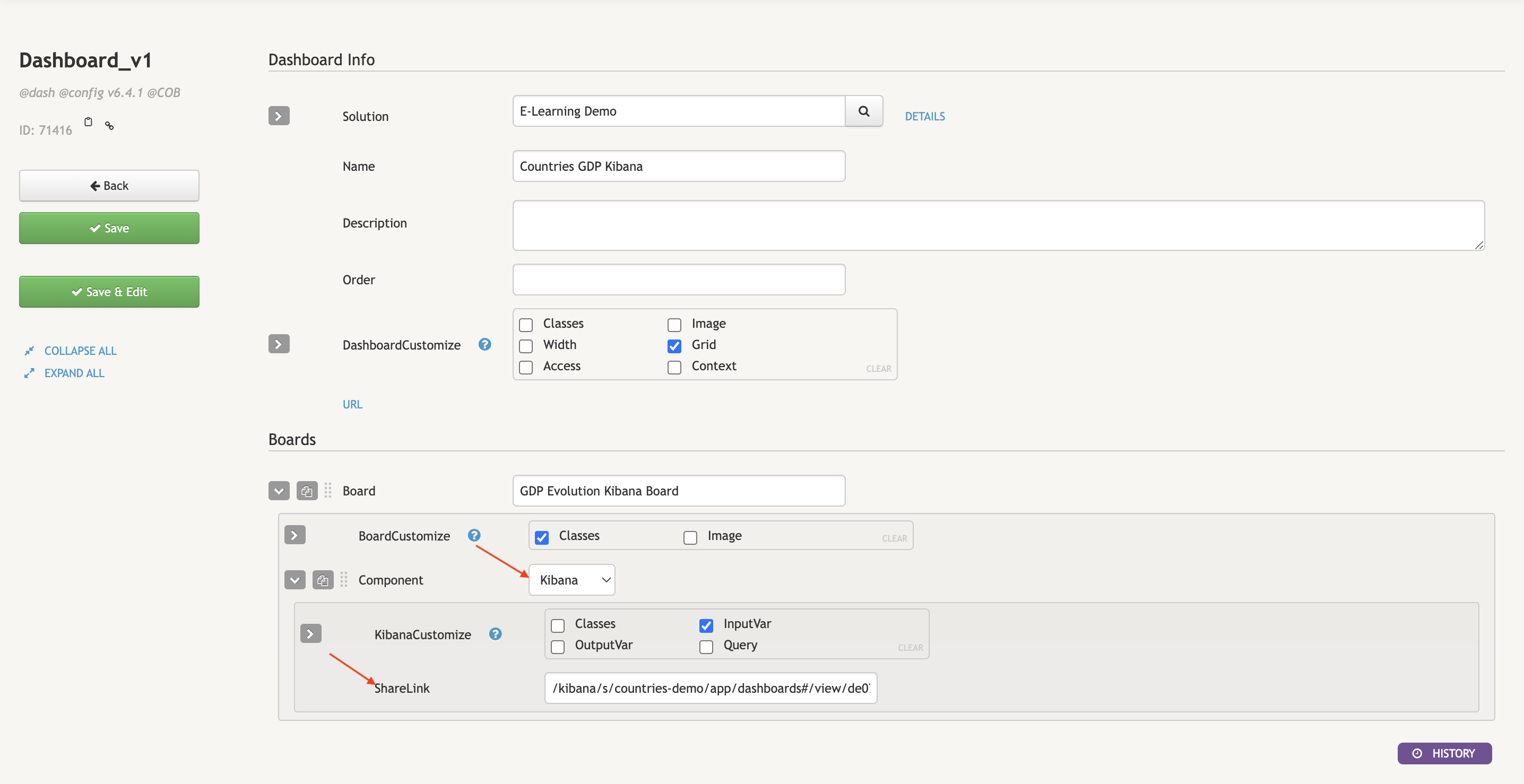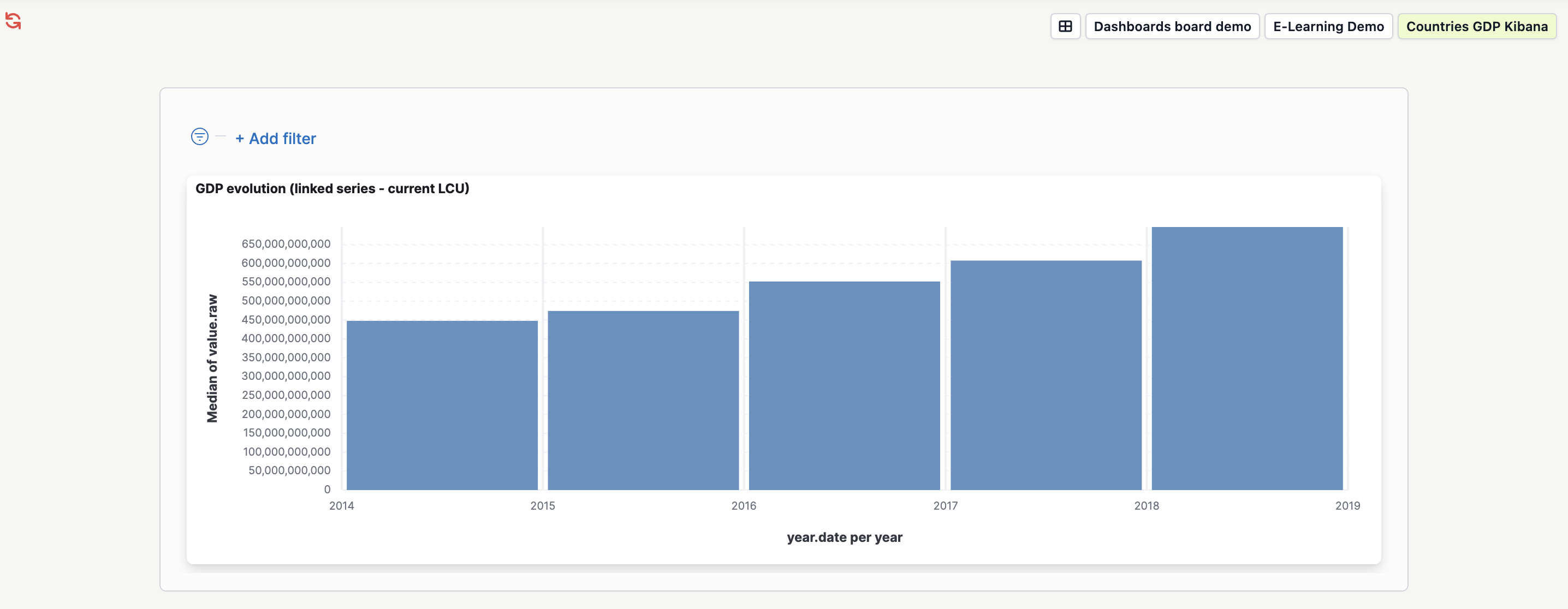# Kibana Dashboards
Kibana (opens new window) is an important software application that enables the user to visualize, monitor, and search the data that is stored in Elasticsearch (opens new window).
Kibana (opens new window) serves as a crucial software application that empowers users to visualize, monitor, and search through data stored in Elasticsearch (opens new window)."
To integrate Kibana into RecordM dashboards, users must initially acquire the shared link of the Kibana dashboard they wish to display.
# 1. Obtaining Kibana Dashboard Link
To acquire the shared link of the Kibana dashboard, users must follow these instructions:
- Enter the Kibana home page by using the URL
name_of_your_server.cultofbits.com/kibanaon the browser; - Select the desired space;
- Click the burger menu, and click on the option that says
Dashboard; - Click on the desired Kibana dashboard,
- On the top right corner, choose the
sharebutton; - Click on
Permalinks - Click on
Saved object - Then click on the button
Copy link. This will copy the link of the dashboard into the clipboard.
The sequence of images on this post (opens new window) will guide users through the process of obtaining the shareLink.
# 2. Creating the Dashboard
The kibana dashboard component provides the following parameters:
| Parameter name | Description |
|---|---|
| InputVarKibana | local dashboard variable with value coming from board in the same dashboard context. Used to affect the query passed to Kibana |
| OutputVarKibana | local variable with value coming from this Kibana board. Used to affect other queries in other boards in the same dasboard context |
| InputQueryKibana | local dashboard variable with value coming from board in the same dashboard context. Used to affect the query passed to Kibana |
# Example
With the shared link collected above, the user can then proceed to create the dashboard:
- Create a new record in the definition
Dashboard_v1; - The type of component of this new record must be the
Kibanacomponent; - And in the
ShareLinkinput area, the user must put the obtained link of the kibana dashboard. The user can put the relative link, without the domain and starting from/kibana/.... - The user must also append the query parameter
&embed=trueto the uri, for instance:/kibana/s/countries-demo/app/dashboards#/view/de075bc0-7c9c-11ed-a18d-f748ebe4a0ad?_g=(filters%3A!())&embed=true.
The following images show the dashboard configuration and its output:


